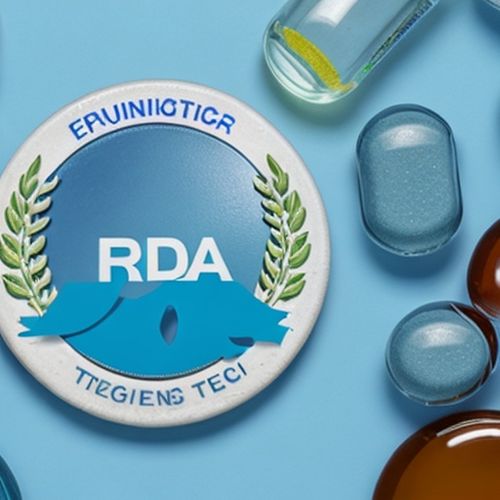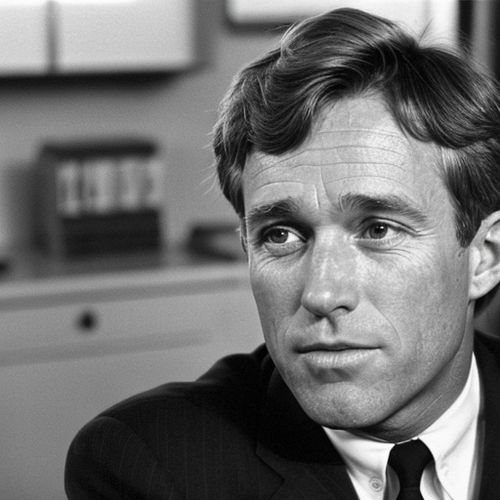In the intricate tapestry of public health, the quest for understanding the causes of autism has long been a subject of intense scientific inquiry. However, recent announcements by the US Department of Health and Human Services (HHS), spearheaded by Secretary Robert F. Kennedy Jr., have cast a shadow of skepticism over the scientific community. Kennedy’s declaration of a “massive testing and research effort” aimed at determining the cause of the “autism epidemic” by September has raised eyebrows and concerns, especially given his contentious history with vaccine advocacy and his propensity to conflate misinformation with scientific inquiry.
The Announcement and Its Implications
Kennedy’s announcement, made during a Cabinet meeting with President Donald Trump, promised a global collaboration involving hundreds of scientists. The ambitious timeline of delivering conclusive results by September has been met with doubt and apprehension. President Trump’s response, hinting at potential artificial causes and suggesting a future where certain exposures could be eliminated, further fueled speculation about the direction and integrity of this research initiative.
The rising rates of autism in the US, currently at about 1 in 36 children according to the CDC, have indeed prompted urgent calls for investigation. However, the scientific community has long recognized that the increase in diagnosed cases is largely due to heightened awareness, broader diagnostic criteria, improved screening tools, and earlier detection. While the exact causes of autism remain complex and multifaceted, with genetic and environmental factors playing significant roles, the consensus is clear: vaccines are not a contributing factor.
The Shadow of Kennedy’s History
Kennedy’s history of anti-vaccine advocacy looms large over this new endeavor. Despite overwhelming scientific evidence debunking any link between vaccines and autism, Kennedy has persistently promoted this discredited theory. His actions, including directing the CDC to study vaccines and autism despite the agency’s own findings, and the forced resignation of Dr. Peter Marks from the FDA, have raised questions about his commitment to evidence-based science.
The appointment of David Geier, a controversial figure with a retracted paper claiming links between vaccines and autism, as a senior data analyst at HHS, further undermines confidence in the department’s scientific integrity. Geier’s past disciplinary actions by medical boards for unlicensed practice and his association with his father, who was accused of endangering autistic children, cast a dark shadow over the credibility of the research initiative.
Skepticism from the Scientific Community
The scientific community has responded with skepticism and concern. The Autism Society of America labeled Kennedy’s claims as “unrealistic and misleading,” emphasizing the need for rigorous, science-based research rather than speculation. The Autistic Self Advocacy Network criticized the initiative as biased, suggesting that the predetermined goal is to prove a specific cause rather than to explore the full spectrum of potential factors.
Health researchers have also questioned the feasibility of the ambitious timeline. Dr. Lisa Settles, director of Tulane’s Center for Autism and Related Disorders, pointed out that even developing a research program would take longer than the proposed five months. The notion of conducting a comprehensive global study, collecting and analyzing data, and reaching conclusive results within such a short period is deemed implausible by many experts.
The Risks of Preordained Conclusions
Dr. Peter Hotez, a renowned vaccine researcher and author of “Vaccines Did Not Cause Rachel’s Autism,” highlighted the well-established scientific understanding of autism’s origins in early fetal brain development, long before vaccines are administered. He suggested that Kennedy’s predetermined framework is likely to yield incorrect conclusions, further perpetuating misinformation.
The recent restructuring of HHS, which included a 25% staff reduction and the elimination of entire departments, raises additional concerns about the feasibility and funding of such a large-scale study. Dr. Georges Benjamin, executive director of the American Public Health Association, questioned how the department could lead a global study while cutting budgets and alienating international research communities.
The Broader Implications for Public Health
The potential consequences of this misguided research initiative extend beyond the autism community. By perpetuating unfounded theories and casting doubt on established scientific consensus, Kennedy’s actions risk eroding public trust in vaccines and public health institutions. This erosion of trust could have far-reaching implications, particularly in the context of ongoing infectious disease outbreaks, such as the measles epidemic in West Texas.
Kennedy’s downplaying of the measles outbreak and his promotion of unproven treatments further underscore the dangers of prioritizing personal beliefs over scientific evidence. The scientific community has repeatedly emphasized that vaccination is the most effective means of preventing and controlling measles outbreaks. By suggesting alternative treatments and questioning the necessity of vaccination, Kennedy undermines public health efforts and puts vulnerable populations at risk.
A Call for Evidence-Based Science
The announcement of a “massive testing and research effort” into the causes of autism by HHS is fraught with concerns and skepticism. Given Kennedy’s history of promoting misinformation and his apparent bias towards discredited theories, the scientific community and public health advocates have valid reasons to question the integrity and feasibility of this initiative.
In the pursuit of understanding complex conditions like autism, it is imperative to prioritize evidence-based science, rigorous research methodologies, and transparent communication. The scientific community has made significant strides in understanding the multifaceted causes of autism, and it is crucial to build on this foundation rather than diverting attention and resources towards predetermined and unfounded theories.
As we navigate the challenges of public health in an era of misinformation, it is essential for leaders to uphold the principles of scientific integrity and to prioritize the well-being of the public above personal agendas. The autism community, like all communities affected by complex health issues, deserves accurate information, robust research, and compassionate support. It is time to refocus efforts on evidence-based solutions and to foster a culture of trust and transparency in public health.

By Samuel Cooper/Apr 16, 2025

By James Moore/Apr 16, 2025

By Sophia Lewis/Apr 16, 2025

By Michael Brown/Apr 16, 2025

By Christopher Harris/Apr 16, 2025

By Natalie Campbell/Apr 16, 2025

By George Bailey/Apr 16, 2025

By Thomas Roberts/Apr 16, 2025

By Natalie Campbell/Apr 16, 2025

By John Smith/Apr 16, 2025

By Emma Thompson/Apr 15, 2025

By Lily Simpson/Apr 15, 2025

By Noah Bell/Apr 15, 2025

By Victoria Gonzalez/Apr 15, 2025

By Benjamin Evans/Apr 15, 2025

By Joshua Howard/Apr 15, 2025

By Daniel Scott/Apr 15, 2025

By Amanda Phillips/Apr 15, 2025

By James Moore/Apr 15, 2025

By Grace Cox/Apr 15, 2025